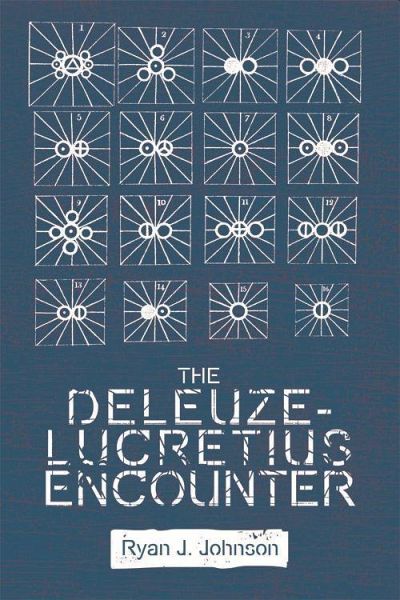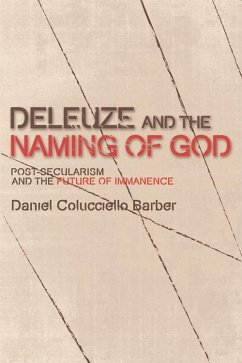
The Deleuze-Lucretius Encounter
Versandkostenfrei!
Versandfertig in 2-4 Wochen
38,99 €
inkl. MwSt.
Weitere Ausgaben:

PAYBACK Punkte
19 °P sammeln!
Scholarship has ignored one of the more formative influences on Deleuze: Lucretian atomism. Filling a significant gap in Deleuze Studies, Ryan J. Johnson tells the story of the Deleuze-Lucretius encounter that begins and ends with a powerful claim: Lucretian atomism produced Deleuzianism.













